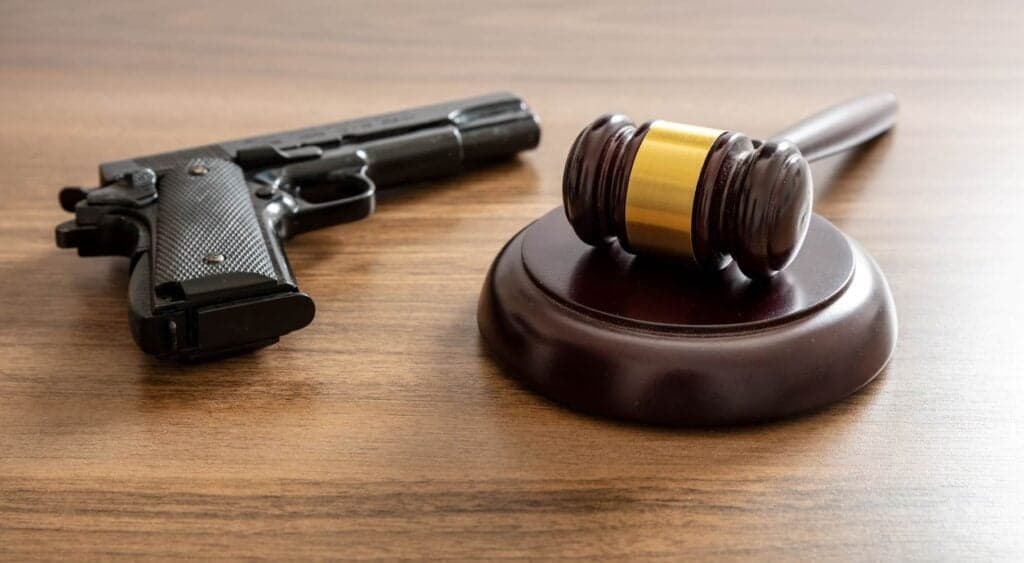LawFuel Power Brief: From MyRights.law, personal injury and criminal lawyers
The rise of so-called “ghost guns” has become a significant point of contention in the national debate surrounding gun rights, public safety, and government regulation. These firearms, often assembled from kits or created using 3D printing technology, lack the serial numbers required on traditionally manufactured weapons. This characteristic can make them untraceable by law enforcement, presenting a unique set of challenges and legal questions.
As a response, both federal and state governments have enacted stringent laws to curb their proliferation. This has led to a complex legal landscape that gun owners, enthusiasts, and the general public must navigate carefully. Understanding the specifics of these laws is crucial, as the penalties for non-compliance can be severe.
Read on to learn about Ghost Gun Law, including one’s rights, risks and penalties.
What Exactly Is a “Ghost Gun”?
A ghost gun is a firearm that is typically sold in a Do-It-Yourself (DIY) kit or as individual components, often referred to as an “80% receiver” or “unfinished frame/receiver.” These parts aren’t classified as firearms under previous federal guidelines because they require additional machining, drilling, or finishing to become operational. This legal loophole allowed them to be sold without a background check or serial number. Once fully assembled, the resulting firearm is functional but lacks any form of traceable identification, making it a “ghost” in the system.
Furthermore, the methods for creating these weapons have evolved. While kits remain popular, advancements in 3D printing technology now allow individuals to manufacture polymer frames and receivers at home using digital blueprints. This accessibility has heightened concerns among lawmakers and law enforcement agencies about the potential for these weapons to fall into the hands of individuals prohibited from owning firearms.
Therefore, for individuals facing allegations related to these unsterilized firearms in California or similar locations, securing expert legal defense is a critical first step. For instance, consulting a lawyer for ghost gun charges in California can provide essential guidance through the intricacies of the state’s penal code.
The Evolving Legal Framework: Federal Levels
The regulatory environment surrounding ghost guns is dynamic and has seen major recent changes. For instance, the Bureau of Alcohol, Tobacco, Firearms, and Explosives (ATF) enacted a new rule to close the loophole surrounding unfinished frames and receivers.
The rule, “Definition of ‘Frame or Receiver’ and Identification of Firearms,” redefines key terms to ensure that core components are treated as firearms under the Gun Control Act of 1968. This means that businesses manufacturing these kits must now include serial numbers on the components and require buyers to pass a background check before purchase. Furthermore, the rule requires federal firearms licensees (FFLs) to serialize any unnumbered ghost guns they take into inventory.
The Rights Argument: The Perspective of Gun Owners
Proponents and defenders of the right to build personal firearms often base their arguments on the Second Amendment. They contend that the right to bear arms inherently includes the right to manufacture one’s own guns for personal use, a tradition dating back to the nation’s founding. They view regulations on homemade firearms as an overreach that infringes upon individual liberties and criminalizes law-abiding hobbyists and craftsmen.
Additionally, they argue that criminals will not comply with serialization laws, meaning the new regulations primarily burden citizens who follow the law.
The Risks and Penalties: Severe Consequences for Violations
The risks associated with ghost guns are twofold: the public safety risk posed by untraceable weapons and the significant legal risk for individuals who violate the complex web of regulations. From a public safety perspective, law enforcement agencies report that ghost guns are increasingly recovered at crime scenes, complicating investigations and hindering efforts to track illegal weapons trafficking.
The legal penalties are harsh for individuals. For example, in California, violations related to ghost guns are typically prosecuted as wobblers, meaning the district attorney can choose to file charges as either a misdemeanor or a felony depending on the circumstances of the case and the defendant’s criminal history.
Navigating the Complexities

The landscape of ghost gun law is highly technical and constantly shifting. What was legal one year ago may be a prosecutable offense today. For gun enthusiasts, understanding the precise requirements for legally building a personal firearm, including applying to the ATF for a serial number and conducting a background check on oneself, is now essential.
The complexities of the law can make skilled legal representation not just an advantage but a necessity for those accused of a violation. The intersection of constitutional rights, public safety, and aggressive prosecution can create a field where the guidance of a knowledgeable legal professional is indispensable for navigating a case’s potential outcomes.
Conclusion
The legal landscape surrounding ghost guns represents a tense and evolving clash between constitutional rights and public safety imperatives. Navigating this complex field requires a clear understanding of federal and state-specific statutes. The severe penalties underscore the critical importance of strict compliance for anyone involved in manufacturing or owning firearms. By keeping the information mentioned above in mind, one can stay informed and seek expert guidance, which is essential for responsibly exercising rights while adhering to the law.